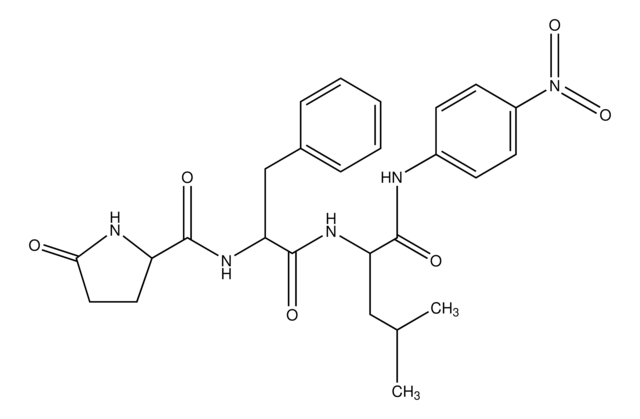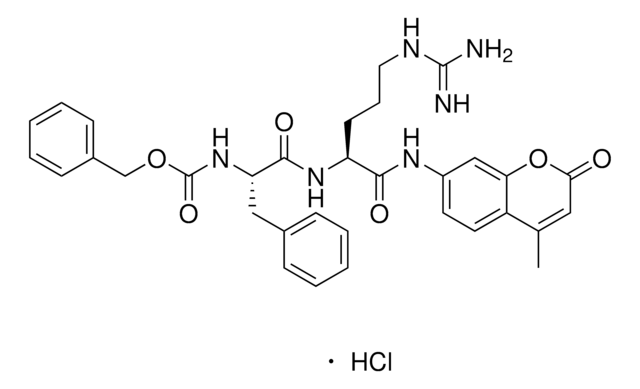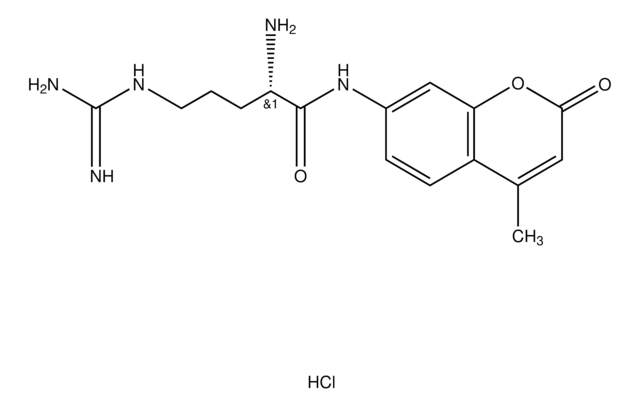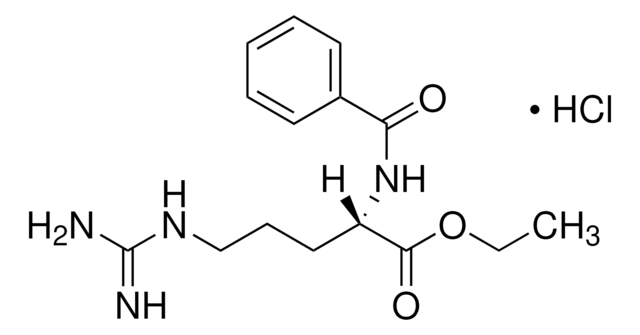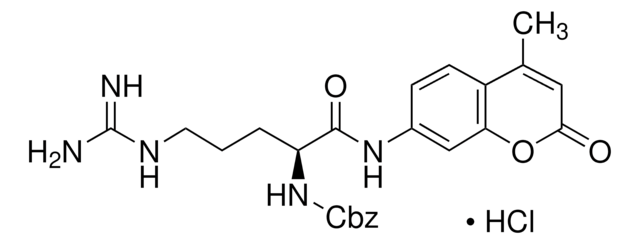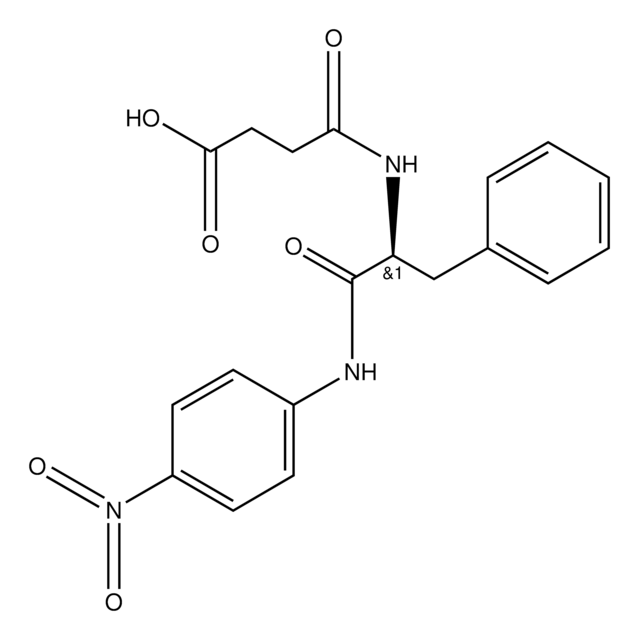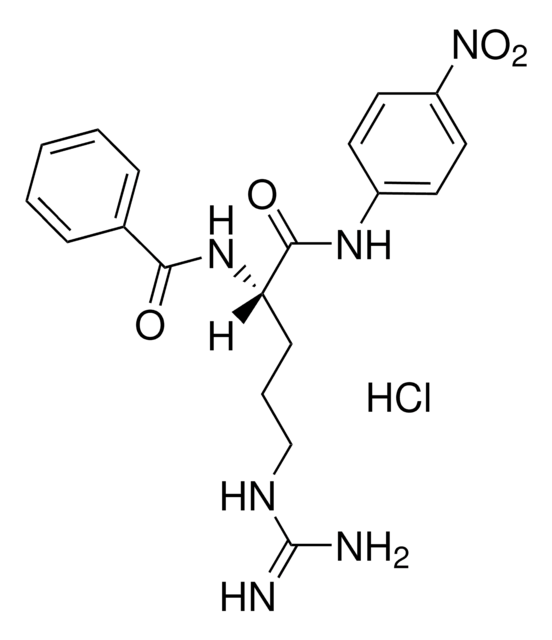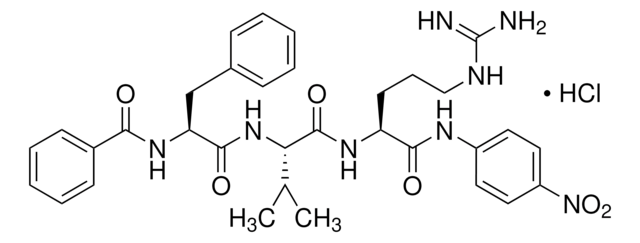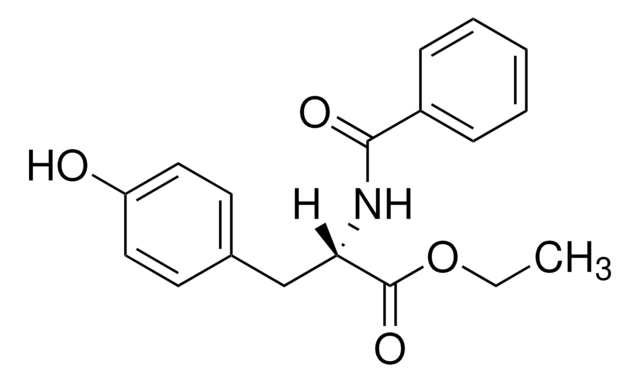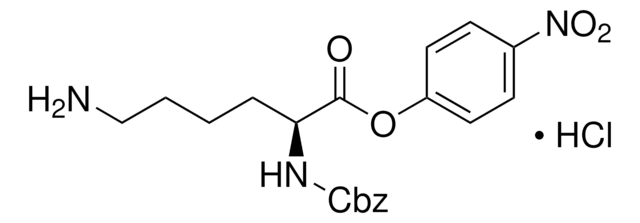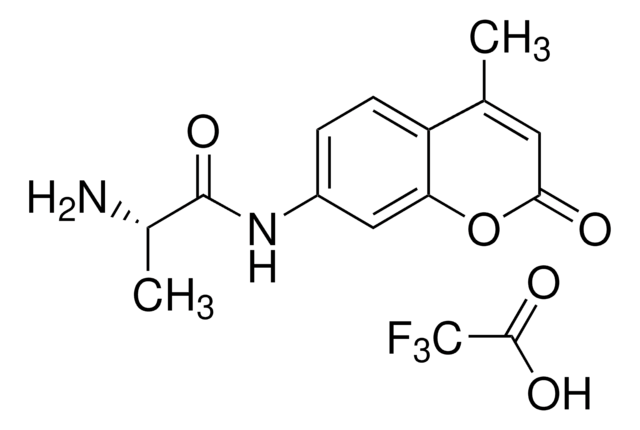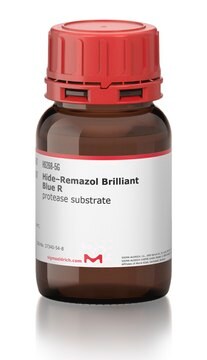B7260
Nα-Benzoyl-L-arginine-7-amido-4-methylcoumarin hydrochloride
protease substrate, ≥99% (TLC), powder
Synonym(s):
Bz-Arg-AMC hydrochloride
About This Item
Recommended Products
product name
Nα-Benzoyl-L-arginine-7-amido-4-methylcoumarin hydrochloride, protease substrate
Quality Level
Assay
≥99% (TLC)
form
powder
solubility
DMSO:methanol (1:1): 20 mg/mL, clear, colorless
storage temp.
−20°C
SMILES string
Cl.CC1=CC(=O)Oc2cc(NC(=O)[C@H](CCCNC(N)=N)NC(=O)c3ccccc3)ccc12
InChI
1S/C23H25N5O4.ClH/c1-14-12-20(29)32-19-13-16(9-10-17(14)19)27-22(31)18(8-5-11-26-23(24)25)28-21(30)15-6-3-2-4-7-15;/h2-4,6-7,9-10,12-13,18H,5,8,11H2,1H3,(H,27,31)(H,28,30)(H4,24,25,26);1H/t18-;/m0./s1
InChI key
XKAVYOJOHZLTDF-FERBBOLQSA-N
Application
- as a substrate for trypsin-like proteolysis of peptide in red blood cells
- as a substrate for midgut proteases of Pieris brassicae
- as a substrate in screening serine protease activity of venom
Packaging
Substrates
Storage Class Code
11 - Combustible Solids
WGK
WGK 3
Flash Point(F)
Not applicable
Flash Point(C)
Not applicable
Personal Protective Equipment
Certificates of Analysis (COA)
Search for Certificates of Analysis (COA) by entering the products Lot/Batch Number. Lot and Batch Numbers can be found on a product’s label following the words ‘Lot’ or ‘Batch’.
Already Own This Product?
Find documentation for the products that you have recently purchased in the Document Library.
Customers Also Viewed
Articles
Papain is a cysteine protease of the peptidase C1 family. Papain consists of a single polypeptide chain with three disulfide bridges and a sulfhydryl group necessary for activity of the enzyme.
Related Content
Trypsin is an enzyme in the serine protease class that consists of a polypeptide chain of 223 amino acid residues. Multiple sources, grades and formulations of trypsin specifically designed for research applications are available.
Our team of scientists has experience in all areas of research including Life Science, Material Science, Chemical Synthesis, Chromatography, Analytical and many others.
Contact Technical Service